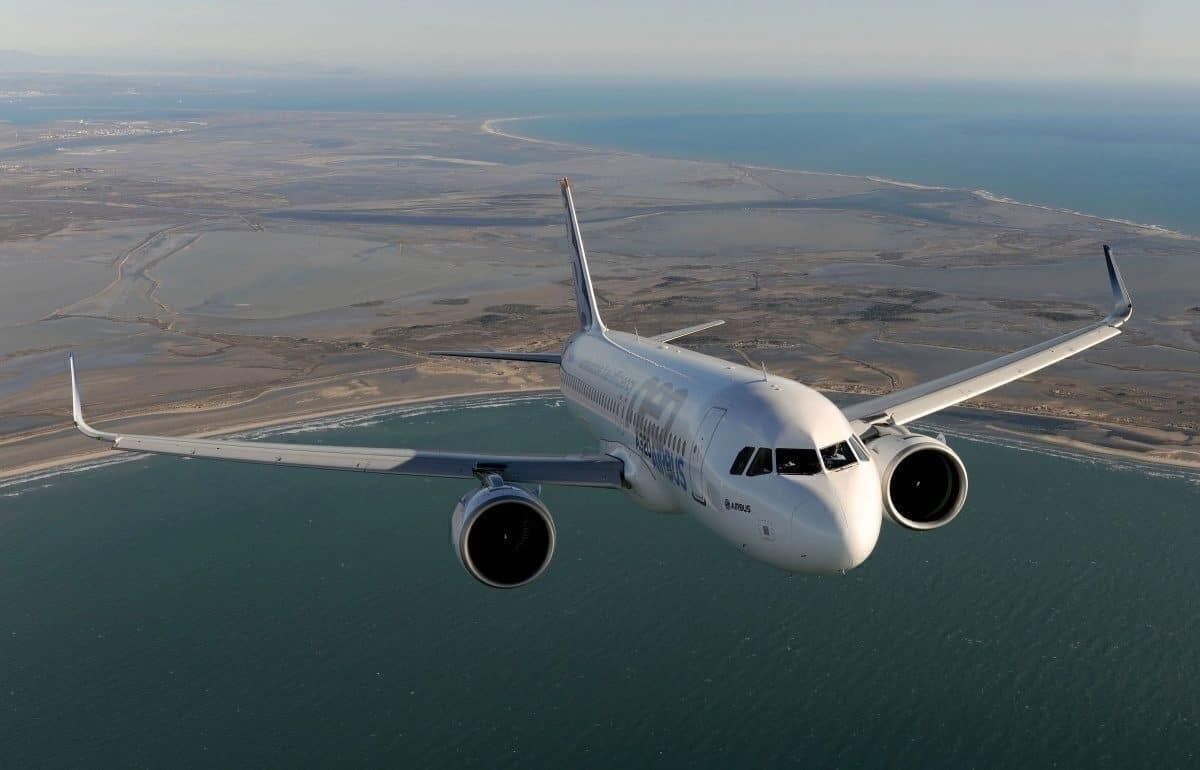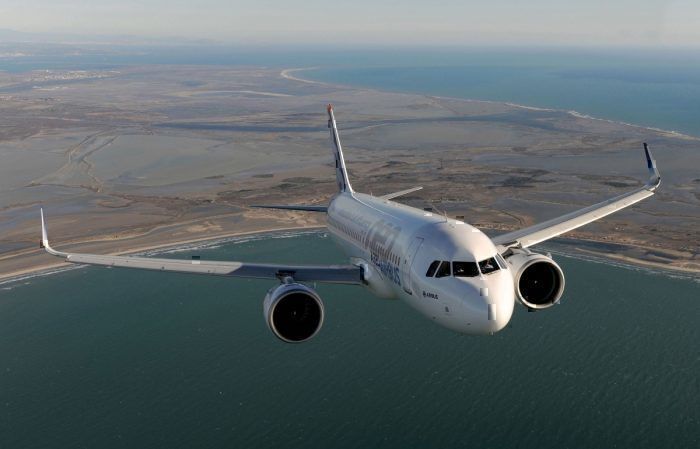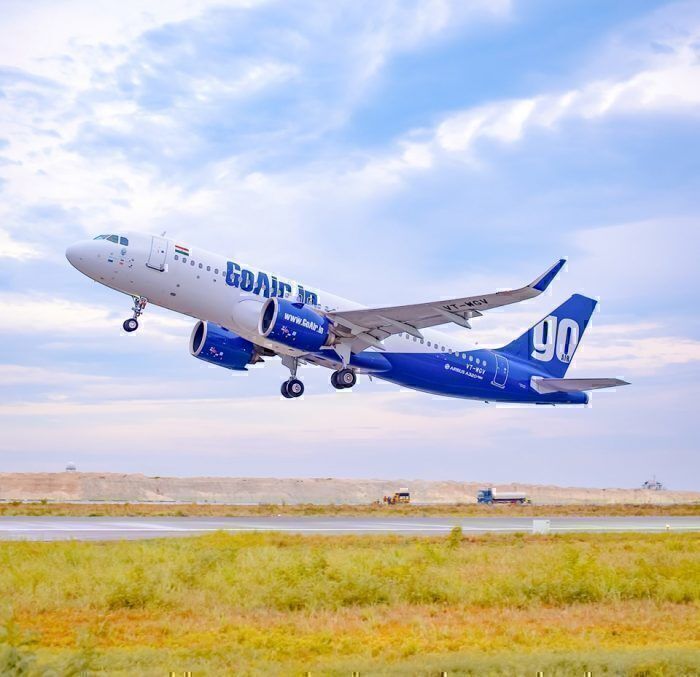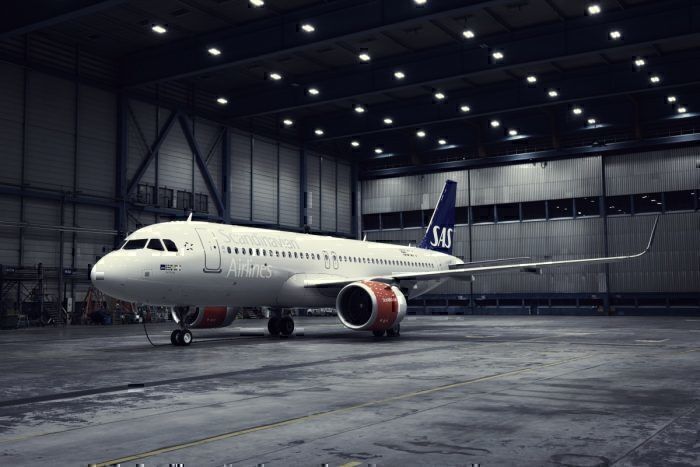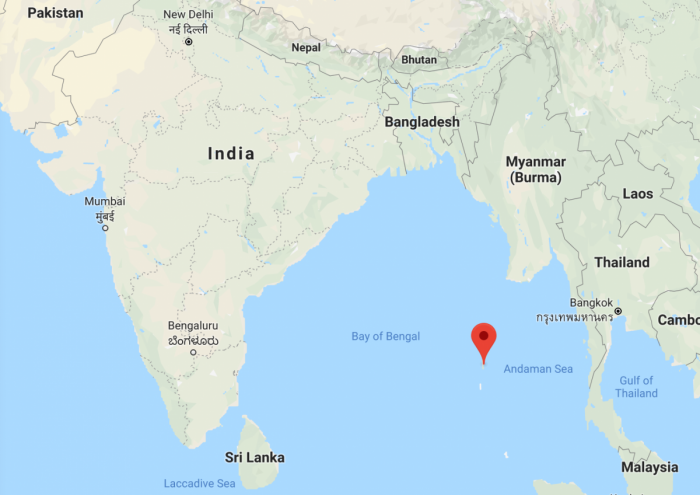At the beginning of July, GoAir reached a historic milestone as it received its 50th Airbus A320. However, it's not all good news, as the new aircraft have come with their fair share of problems and issues. In fact, budget Indian carriers IndiGo and GoAir have seen flight delays and cancellations because of issues with their A320neos and the engines they employ. More specifically, the Pratt and Whitney 1100G.
According to LiveMint, IndiGo operates 92 P&W powered A320neo planes, while GoAir has 35 of the same in its fleet. Furthermore, as "world’s best-selling aircraft of all time" (according to Airbus) and at least 40% of all A320neo engine options according to CAPA, this problem actually affects airlines all over the world.
The P&W 1100G engine is one of two engine options that power the Airbus A320. The other is the CFM International LEAP-1A. A 2018 article from CAPA states that the CFM engine option held a 56% share of orders at the time. According to LiveMint, there are presently 127 P&W engine-powered A320neo aircraft in India and 436 operating globally.
Engine issues
According to sources, there are several problems with the Pratt & Whitney engine. These include:
- Combustion chamber distress
- Low pressure turbine (LPT) and gear box failures
- Engine vibration
In fact, it's been just over a year that Pratt & Whitney had to investigate incidents of excessive vibration in its engines. In fact, last September Air Transport World reported that Lufthansa operations were being severely affected by the A320neo engine vibration issue. According to its sources, ATW reported that there were some cases of higher-than-usual geared turbofan engine vibrations noticed after less than 1,000 flight hours.
LiveMint reports that in India the engines have been removed and sent for maintenance or modification. Engines with problematic gearbox issues are "immediately sent for a software update".
In fact, the Indian press has been disproportionately vocal about this issue, despite the engine being employed all over the world. The publication India Today wrote about the issue in January and listed several instances where airlines have had problems:
- December 10th, 2018: An IndiGo flight made an emergency landing in Kolkata after its cabin was filled with smoke.
- December 23rd, 2018: An IndiGo A320neo flight from Port Blair to Kolkata reportedly suffered mid-air engine failure.
- March 2018: Up to 11 such planes were grounded by IndiGo and GoAir from incidents of mid-air aircraft engine failure.
India's civil aviation regulators staying calm
According to India's Economic Times, India's civil aviation regulator is keeping calm about the situation and is relying on airlines to remain vigilant with the known issues:
“It is true that there have been cases of Air Turn Back, In Flight Shut down or Engine vibrations beyond the prescribed limits, but with strong mitigation measures in place and strict adherence to SOPs by the Airlines, the problem is being contained. Whenever, there is a problem with the Engine, the Aircraft is being grounded and the Engine replaced,” -India's Directorate General of Civil Aviation (DGCA)
In fact, there have been a number of actions taken by the DGCA to cope with the issues. According to LiveMint, these steps include:
- The early removal of engines to prevent glitches
- More frequent combustion chamber inspections and engine replacements.
- Asking airlines to log all cases of detection of odor or smoke in the cabin during operations
- Having airlines monitor and inspect engines in case of vibration.
- Restricting the operation of A320neo aircraft with P&W engines over the Port Blair sector as the plane has to fly over water bodies.
Furthermore, it is reported that all A320/321neo aircraft entering service after August 2019 must have a modified main gearbox and modified low pressure turbine blades installed.
Conclusion
It seems like the issue is somewhat under control. Thankfully there have been no accidents as a result of the issue, despite the occurrence of several engine failures. The public will have to put its trust in civil aviation authorities and airlines to perform the necessary maintenance and inspection to ensure the continued safe operation of affected aircraft.

